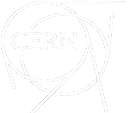Who are the teams from the first edition of the CERN Medtech:Hack?
Team HADDPHI, from Hungary, represented by Balazs Ujvari, Balazs Gyongyosi, David Baranyai and Berta Korcsmaros, worked on Radiabeam’s challenge of making x-ray conversion more effective. Their solution foresees a combination of Geant4 to find the best set of parameters to make the beam sharper, and of a detector to benchmark the simulation.

Team LIKE, from Portugal, represented by Helena Pereira, Claudia Alves, Vanessa Ramos and Lúcia Abreu, worked on G-ray’s challenge of developing a toolkit for mammography to provide better images at a lower radiation dose. Their solution, “Innovative mammography toolkit” is a personalised screening technique that allows to target the areas of interest. To achieve this goal, the team has foreseen the use of MammoGrid and of CERN’s data analytics tools.

Team 2.7, from Tanzania, represented by Maryam Mohamadali, Gowtham Adithya and Shaukatali Zahir Hussein, worked on the Global Humanitarian Lab’s challenge about Mobile Health – how can people in rural areas better get access to vital health care. Their solution, Box.e, is a portable device with several sensors to measure the vital signs of the patients, which uses CERN’s technology C2MON to store and monitor data.

Team MedSquad, from Spain, represented by Elena Balboa, Rafael Montaño, Daniel Lanza, Antonio Tovar and Carlos Montaño, also worked on the Global Humanitarian Lab’s challenge about Mobile Health. Their solution, medrate is an inexpensive monitoring tool to measure the heart rate of the foetus in pregnant women and the respiration rate of children under 5 years of age. CERN’s ROOT software will be used to analyse the data.

Team Radioactive_boys, from Germany, represented by Hans Christian Jung, Benedikt Schmitz and Yannik Schädler, worked on HUG’s challenge about screening radiopharmaceuticals in a much faster and efficient way. Their solution, Bioscan is a modular hybrid scanner for measurement of radioactivity: Bioscan is fast, and boasts high spatial and temporal solution using CERN’s GEMPix detector.

